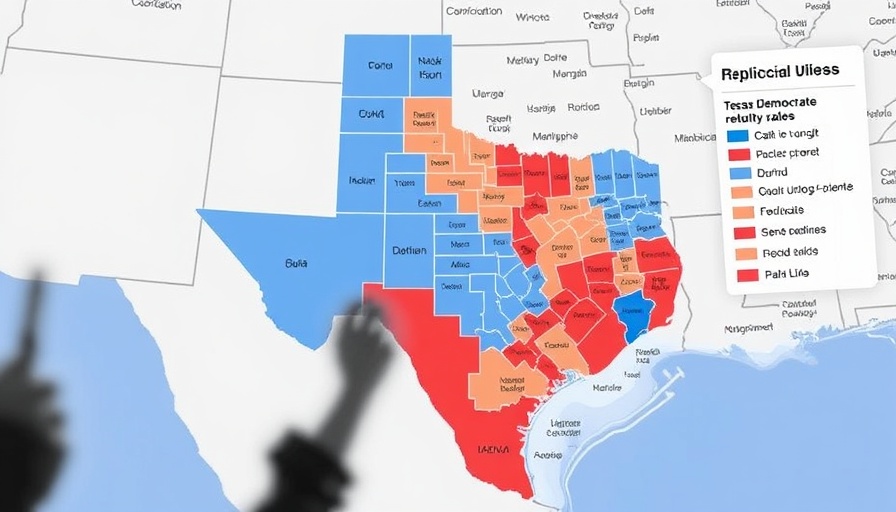
Texas Transitions to Metal Temporary License Tags: What Drivers Need to Know
As of July 1, Texas will officially retire paper temporary license tags, marking a significant shift in vehicle registration practices across the state. This change is being met with eagerness by law enforcement and concern from many Texas drivers as they navigate a new system that seeks to curb identity fraud and enhance road safety.
Why the Change from Paper to Metal is Essential
The decision to eliminate paper tags comes after growing concerns about their misuse. Investigative reports highlighted how these tags became a mainstay for criminals attempting to evade law enforcement. In particular, the tragic death of Grand Prairie Police Officer Brandon Tsai in November 2022 underscored the importance of this transition. Tsai was pursuing a driver with a fraudulent paper tag at the time of the fatal incident, illuminating the vital need for more secure licensing practices.
Grand Prairie Police Chief Daniel Scesney expressed that the end of paper tags will be a "game changer" for law enforcement. With this change, officers are hopeful that illegal activity will decrease significantly as they no longer have to deal with the daily hassle of unearthing fake tags that clutter the streets.
How Metal Temporary Tags Work
Starting in July, drivers in Texas will receive metal temporary tags that will need to be affixed to their vehicles. These tags are designed to be more difficult to replicate than their paper predecessors, thus reducing the chances of fraud. Moreover, the metal tags are expected to last longer than paper ones and are resistant to the weather-related damages that often incapacitate paper tags.
With the potential for a more secure system in place, this move is also anticipated to boost public confidence in vehicle registration practices. Vehicle owners can have peace of mind knowing that their temporary tags are less likely to be forged, providing an additional layer of security both for themselves and other drivers on the road.
Feedback from Texas Drivers: Concerns and Questions
While the transition is received positively by many in law enforcement, drivers have valid questions regarding how this change will affect their day-to-day lives. Many are concerned about the costs associated with the new metal tags and whether these will be passed on to them. Additionally, questions loom about how the system will be monitored and enforced, ensuring that the benefits truly materialize.
Local residents have voiced their feelings in community forums, indicating a mix of support and skepticism. Some are anxious about the transition period, fearing that there may be delays or hiccups in receiving their new tags in a timely manner. Others welcome the change, believing it necessary to protect the integrity of vehicular registration within Texas.
The Future of Licensing in Texas: Predictions and Insights
This significant move accompanying a broader trend toward utilizing technology in everyday processes does not only apply to licensing but also reflects a growing embrace of digitization and modernization in government services. As the state continues to innovate, we can expect more technological advancements that prioritize citizen safety and operational effectiveness.
In the foreseeable future, Texas might explore adding features to enhance the functionality of metal temporary tags, such as QR codes for quick scanning by law enforcement and automated services to streamline the registration process.
What You Need To Do Now
As the July 1 deadline approaches, drivers are encouraged to ensure they are prepared for the transition by consulting with their vehicle registration offices for details on how to obtain metal temporary tags and what documentation may be needed.
Through these discussions, a successful transition can be achieved, fostering greater trust in the system and ultimately making Texas roads safer for everyone.
In this evolving landscape of vehicle registration, staying informed is essential. Consider discussing with local officials about any further questions or concerns about this upcoming change and how it will be implemented in your area.
Final Thoughts on Paper License Tags in Texas
The elimination of paper temporary license tags signifies a substantial step toward modernizing vehicle registration in Texas, with far-reaching implications for safety and security. The enthusiastic response from law enforcement reflects hopes that this shift will mitigate fraud and enhance accountability on the streets.
 Add Row
Add Row  Add
Add 




Write A Comment